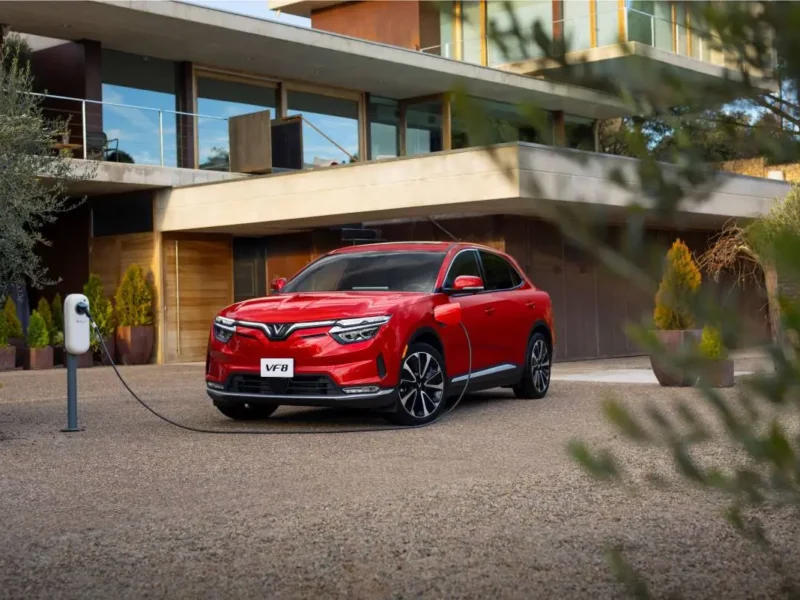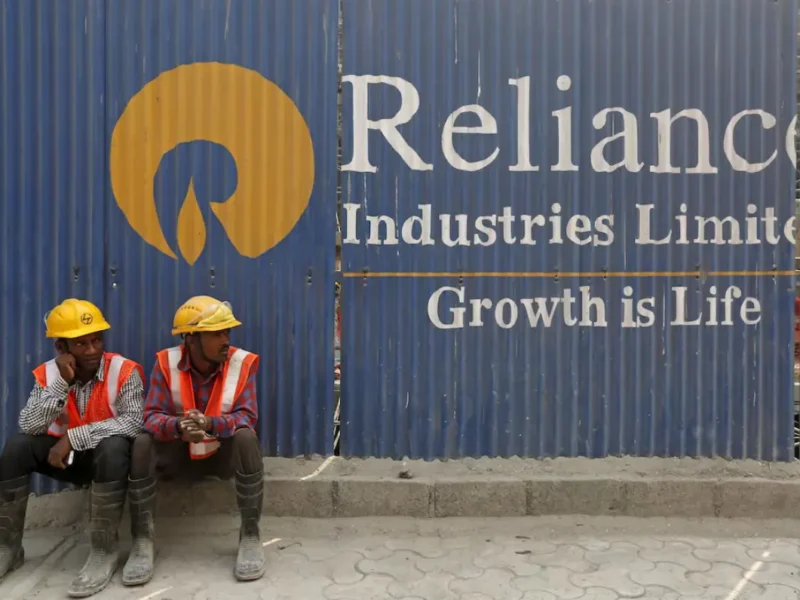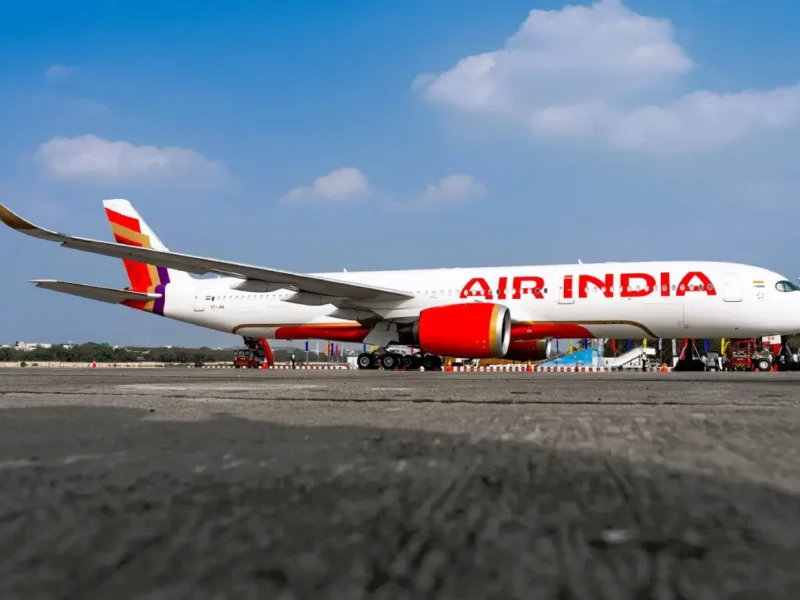
ZScaler Indian American Founder Jay Chaudhry Retains Top Spot in Forbes’ List of 400 Richest Americans
Interglobe Aviations co-founder Rakesh Gangwal made a massive leap from 359 to 253 this year, adding another $2 billion to his fortune. He is seen here at the right in a file photo with Bruce Ashby (center), president and CEO of IndiGo Airlines; and co-founder Rahul Bhatia (left) at a press conference in New Delhi, India, July 31, 2006. (photo by Saptarshi Biswas/The India Today Group via Getty Images)
By SUNITA SOHRABJI/India-West Staff Reporter
ZScaler founder Jay Chaudhry is the richest Indian American with a net worth of $16.3 billion, according to Forbes’ list of the 400 wealthiest Americans.
Seven Indian Americans and one Pakistani American made this year’s list, including entrepreneur and venture capitalist Vinod Khosla; Interglobe Aviations co-founder Rakesh Gangwal; Symphony Technology Group founder and chairman Romesh Wadhwani; Niraj Shah, co-founder and CEO of Wayfair; Workday CEO and co-founder Aneel Bhusri; and Robinhood co-founder Baiju Bhatt, who at 36, is one of the youngest billionaires on the list.
Pakistani American Shahid Khan, founder of the automotive company Flex-N-Gate and owner of the NFL team Jacksonville Jaguars, came in at 94th place, with a net worth of $8.5 billion.
Notably absent from the list was Sherpalo Ventures founder Ram Shriram, whose net worth of $2.7 billion put him just below 11 people at the bottom of the list with fortunes of $2.9 billion. Last year, Shriram, an early backer of Google, placed 359 on Forbes’ list, with a net worth of $2.3 billion.
Chaudhry, the son of a small-scale farmer in Himachal Pradesh, founded ZScaler — a pioneer in cloud-based security services — in 2008 with his wife Jyoti, and took the company public a decade later. He came in at 45 this year, jumping 40 spots from his ranking in 2020, and increasing his wealth by more than $10 billion in just one year.
In a speech he gave in 2018, shortly after winning EY’s Entrepreneur of the Year regional award for Northern California, Chaudhry credited his parents, who had never gone to school.
“They taught me the value of hard work and a good education,” he said.
“Great ideas are a dime a dozen. If you’ve thought of it, chances are someone else has already thought of it. It is great execution that makes those ideas a reality,” said Chaudhry, who is 61.
Khosla, who co-founded Sun Microsystems in 1982, made a dramatic leap, climbing from 353 last year with a net worth of $2.4 billion, to 92 this year, with a net worth of $8.6 billion, increasing his fortunes by more than $6 billion. His venture capital firm, Khosla Ventures, focuses on green tech, particularly alternative fuels. It also invests in experimental technologies such as biomedicine and robotics.
“Investors have two emotions: the fear of losing money, and the greed of making money,” said Khosla, at a May 2018 dinner for women entrepreneurs from India. “Technology is the single largest leverage we have in making a difference in the world.”
Gangwal also made a massive leap from 359 to 253 this year, adding another $2 billion to his fortune. Interglobe is the parent company for the budget airlines IndiGo. The 68-year-old Miami, Florida resident started his airline career with United Airlines in 1984 and went on to run US Airways Group as its chief executive and chairman.
Wadhwani fell from 238 last year to 333 this year, with a net worth of $3.5 billion. He sits on the boards of the Kennedy Center and the Center for Strategic and International Studies, and with his brother, Sunil, founded the Wadhwani Institute of Artificial Intelligence at the University of Mumbai in 2018, committing over $30 million.
Shah came in at 340 this year, dropping from 299 last year. The 46-year-old founded online home goods retailer Wayfair, with his high school friend Steve Conine, who is also a billionaire. “The pandemic was the best thing that ever happened to Wayfair,” read a recent headline in a trade magazine. Shah has said the pandemic has fundamentally changed how Americans shop for furniture and home accessories,
Bhusri increased his net worth to $3.2 billion, but dropped three places on the list, coming in at 363. Bhusri is CEO of business software firm Workday, which he cofounded with Dave Duffield, the founder of PeopleSoft. He started his career in the early 1990s at PeopleSoft, where he rose to become vice chairman.
Bhusri has been on the Forbes Midas List six times since 2008 and in May 2018, Bhusri joined the Giving Pledge, a commitment by the world’s wealthiest people to dedicate the majority of their wealth to philanthropy, according to his Forbes profile.
Bhatt joined the list for the first time, and claimed spot 389, along with 11 others with a net worth of $2.9 billion. Bhatt co-founded the no-fee stock trading app Robinhood in 2013 with his friend Vlad Tenev. He was co-CEO of Robinhood until November 2020, when he stepped down from that position. In July 2021, Robinhood went public on the Nasdaq exchange at a $32 billion valuation. Bhatt owns around 8 percent of the company.
“Since its launch, Robinhood’s no-commission trading model has revolutionized the brokerage industry,” said Forbes.
Despite dramatic gains in fortune amid the Covid-19 pandemic, Indian American billionaires named to the list turned out to be on the low end of philanthropy, according to Forbes, which ranked each billionaire on a scale from 1 to 5, with 5 being the best. Chaudhry and Bhatt got zeroes, while Shah, Bhusri, and Gangwal got ones.
Khosla, who made headlines during the pandemic for pledging $10 million to supply oxygen cylinders, concentrators, and other critical supplies, ranked 2 on Forbes philanthropy scale, as did Wadhwani, whose foundation works extensively in India.
By contrast, the richest American on the list, Amazon founder Jeff Bezos, also got a 1. Microsoft founder Bill Gates, whose foundation works throughout the developing world, received a 4. Only six billionaires, including George Soros, Warren Buffet, and Gordon Moore of Intel, received a 5.
The full list can be viewed here: https://www.forbes.com/forbes-400/




